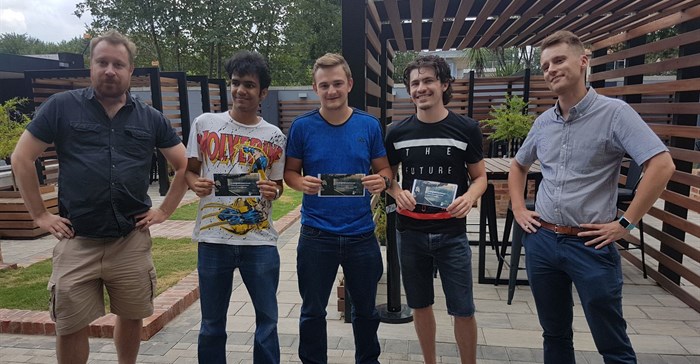
Top stories






More news


Marketing & Media
Ads are coming to AI. Does that really have to be such a bad thing?














Team RGB, made up of Tristan Thompson, Callum Taylor, Tiffany-Jade Hoon, and Christie Edwards, won 'best game art' at this year’s event for their multi-player top-down shooter game.
'Best game sound' was awarded to team The Hive, made up of Ross Adams, Zander Fick, Dewald Du-Toit, Tigran Ohannessian, Aidan Stokes, Joshua Krynauw, Keegan Bagnall, and Darron Hardman for their top-down swarm builder game.
Transcoma, a multi-perspective puzzle game developed by Pierre Du Plessis, Verdanth Panchoo, Matthew Brett, Nicholas Brown, Benit Kadima, Wesley Proxenos, and Jialuo Chen, was chosen as this year’s 'most fun game'.
The Vega Game Jam forms part of the local leg of Global Game Jam (GGJ) which takes place at various locations around the world. Considered a ‘hackathon focused on game development’, the event sees some of the most talented young minds come together to share their creativity and create unique video game experiences – all in no more than two days. The students each contribute a different set of skills and talents to the group from what they’ve learned in their respective courses and qualifications, including animation design and web development.
Says Robert Chrich, academic navigator at Vega: “Participants are responsible for conceptualising, executing and presenting an entire game from scratch. While they do have the support of Vega navigators, the students are in the driving seat making use of their own intelligence, ingenuity and talent throughout the competition. Game jamming gives students first-hand insight into the game-making industry, which is incredibly vital for those trying to enter the job market.”
The event provides a valuable platform for students to meet and network with other would-be game-makers as well as professional game developers in the industry, offering students the unique opportunity to learn and work alongside experienced developers. Participation also allows students to beef up their portfolios, which is particularly rewarding for students hoping to find jobs in the game-making industry.
“This year marks the first time that workshops of this nature, specifically geared at participants who have no gaming experience, have been held in South Africa,” says Chrich. “What makes the GGJ event inclusive and interesting is that the students aren’t limited to creating digital games but can also develop their own board games and card games too, which means that anyone with an interest in gaming of any type can participate, as long as they’re over 18.”